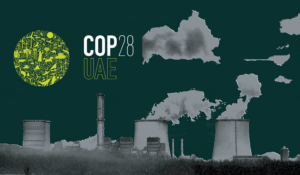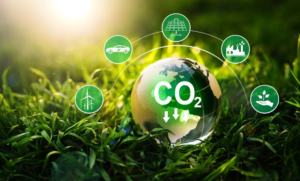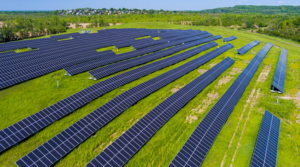
For over a century, the combustion of fossil fuels has generated the vast majority of the energy required to propel our cars, power our businesses, and keep the lights on in our homes. Energy is the ultimate world currency. Even today, fossil fuel-derived oil, coal, and gas serve around 80 percent of our energy needs.
However, a massive global energy transformation is afoot, fueled by a looming deadline to meet net zero carbon emissions by 2030.
Renewable power is quickly becoming a major driving force in America’s energy sector. With groundbreaking innovation, clean energy is offering not only a brighter future for the environment but also a lucrative investment for businesses. Both solar and wind generation have surpassed records, and their integration into the national electricity grid proves the reliability and efficiency of renewable sources. Furthermore, the decreasing cost of renewable power is making sustainable energy more accessible to consumers, leading to a cleaner and more prosperous future for all. As the industry booms, we can look forward to a world that is powered by innovation and sustainability.

Trading Out Fossil Fuels
By displacing dirty fossil fuels, renewables reduce carbon and other harmful emissions. However, not all renewable sources of energy are created equal. Some examples of the long term impact fossil fuels include:
- A quarter of America’s climate-polluting carbon dioxide emissions come from the burning and extraction of oil, gas, and coal from public lands and waters. (Scientific American)
- In 2019, global oil consumption grew by a below-average 0.9 million barrels per day, showing a slow down in the transition to renewable energy sources. (BP)
- The global cost of air pollution from fossil fuels has reached an estimated US$8 billion per day. (NRDC)
- Fossil fuels emit more than just carbon dioxide when burned. Coal-fired power plants single-handedly generate 35 percent of dangerous mercury emissions in the United States, as well as two-thirds of U.S. sulfur dioxide emissions (which contribute to acid rain) and the vast majority of soot (particulate matter) in our air. (NRDC)
The power sector is increasingly relying on solar, wind, and geothermal power, among others, offering the benefit of lower emissions of carbon and other forms of pollution. However, not all renewable energy sources are beneficial to the environment. While biomass and large hydroelectric dams may appear renewable, they also have unwanted consequences such as harm to wildlife, climate change, and other issues.
It is important to know the different types of renewable energy sources to maximize their benefits while minimizing their negative effects. There are already technologies available that can be utilized in your own home, such as solar panels, wind turbines, and energy storage systems, amongst others. It has never been easier to participate in the clean energy revolution.
Defining Renewable Energy
Renewable energy refers to energy sources that are replenished naturally and can be harnessed without depleting their reserves. These sources include solar, wind, hydro, biomass, and geothermal energy. Here are the key factors that make an energy source renewable:
Infinite and Sustainable
Renewable energy sources are inexhaustible and can be utilized without depleting their reserves. Unlike fossil fuels, which take millions of years to form and are finite, renewable energy sources will remain available for future generations.
Low environmental impact
The production and use of renewable energy typically generate fewer greenhouse gas emissions and pollutants compared to conventional energy sources. This helps mitigate climate change and reduces the negative impacts on air and water quality, public health, and ecosystems.

The Race is On
By transitioning to renewables, we can significantly reduce our carbon footprint and help slow down the effects of climate change, such as rising temperatures, extreme weather events, and loss of biodiversity.
Harnessing locally available renewable energy sources, countries can reduce their dependence on imported fossil fuels, enhancing their energy security and independence. This not only helps stabilize energy prices but also reduces geopolitical tensions related to energy resources.
The renewable energy sector has the potential to create numerous jobs in manufacturing, installation, maintenance, and research and development. This can stimulate economic growth and help build a workforce with skills relevant to the green economy.
Reducing our reliance on fossil fuels and embracing renewable energy sources can lead to cleaner air and water, directly benefiting public health. By reducing air pollution, we can lower the incidence of respiratory and cardiovascular diseases and improve the overall quality of life.
The Future is Here for Renewable Energy
Renewable energy is not only a sustainable and environmentally friendly alternative to conventional energy sources but also a vital component in addressing climate change, ensuring energy security, and promoting economic growth and public health. As we continue to face the challenges posed by a rapidly changing world, embracing renewable energy is crucial for ensuring a brighter, greener, and more prosperous future for all.
Contact Greentech United today for guidance on leading the way in clean and sustainable energy.






